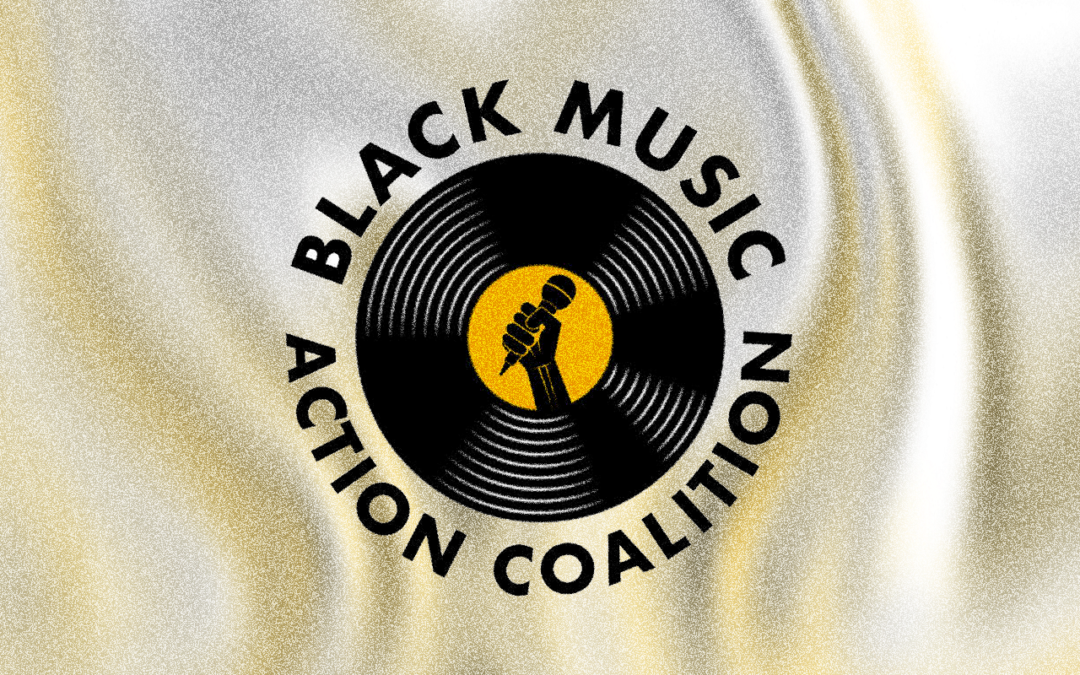In the wake of this spring’s global reckoning on racial injustice, two Black music professionals, Jamila Thomas and Brianna Agyemang, turned the spotlight on the industry with the hashtag #TheShowMustBePaused. In a statement, they explained the action was aimed at disrupting long-standing inequities. Major labels and tech companies responded with statements of solidarity. Some made donations. Others announced vague task forces. But it was generally unclear if these companies were taking any long-term actions to fight against systemic racism within the industry.
The Black Music Action Coalition is trying to make sure that they do. On June 22, the group of music industry professionals published an open letter in which they formed an alliance with #TheShowMustBePaused and outlined objectives, including a full review of the treatment of Black artists as well as the advancement of Black executives at companies including Universal Music Group and YouTube. “The industry that has profited the most off of Black culture must lead by example,” read the letter, which was signed by a wide array of pop titans, from Quincy Jones to Cardi B to Billie Eilish.
Registered as a nonprofit trade organization, BMAC is led by an executive board of Black music managers, major label executives, and lawyers. Among them are marketing consultant Ashaunna Ayars, whose clients include Mary J. Blige and Common; G-Eazy co-manager Jamil Davis, who has previously worked with Lil Wayne and Drake; and Prophet, who manages the careers of artists including Asian Doll and Layton Greene. Last month, the three board members spoke to Pitchfork about their ongoing conversations with the music industry’s most powerful companies, recent efforts at diversity and inclusion, and how they believe the industry can do more to uplift its Black workers.
Pitchfork: How exactly did the BMAC come together?
Prophet: The entire industry agreed that something had to happen, but we wanted to make sure: What happens the next day, when we wake up Black? How do we address the systemic racism within major music companies, and society as a whole, using artists’ voices to do so?
BMAC came out of a conversation from a few managers who were talking with their artists, who were looking to use their voices in a way that was going to be meaningful. Out of that, the Black managers agreed to work together to formulate an agenda in order to hold labels accountable for the pledges that they made.
Jamil Davis: As we saw responses to the moment begin to emerge, we realized that none of them were artist-based, and most of it was coming from the companies. So we wanted to figure out how to activate a non-partisan thing, because we each have artists, clients, lawyers, and agents from all over the industry. We had to understand what people were doing at the big companies and then figure out how to help these people.
Ashaunna Ayars: There’s a lot of work that we’re doing outside of the labels, too. There’s a lot of legislative work that we’re doing, a lot of work on voter suppression and voter registration.
In the letter, you named Universal, Warner, Sony, Apple, YouTube, and BMG as companies you want to sit down with. How have they responded?
Ayars: We are in partnership with a lot of these labels, so we have a great relationship with them. This isn’t a stick-up. These are people that we’ve done business with in one way or another for many, many, many years. So the response has been great, and we all look forward to continuing positive conversations with them.
What would be the ideal outcome as far as conversations with the labels and larger music companies?
Prophet: We’ve received pledges before—money for a bunch of things that either didn’t happen or didn’t go to the people that really need it most. A lot of the time, money is caught up in bureaucracy. So for one, we have identified several organizations, some of which are artist-run foundations, through which that money can go directly to the people. Many people don’t give artists enough credit for a lot of the philanthropy work that they have been doing, and their foundations can use the funds to continue to expand their work. 21 Savage and Future both have incredible organizations, and Common has an initiative that he is launching too. So we have identified programs that need those resources, and a lot of times artists help create the funds that major companies are pledging, so they should be first in line to receive.
When it comes to specific inequities that you have personally either witnessed or experienced in the music industry, what are some issues that each of you want the BMAC to address?
Davis: I’ve been super fortunate and blessed with the trajectory of my personal path, but when I was first starting out, I was a college student at a HBCU—Dillard University in New Orleans—and one of my first gigs was interning for Voodoo Fest. My first year, I was one of the only Black interns, and the only one from my school, but Tulane was heavily represented. It wasn’t a negative experience, but an awakening experience. A lot of people think that if they just go to college, it’s going to set them up for life, but it’s harder at an HBCU. I want to set up programs at those schools and let them know: “This is the way in.”


Recent Comments